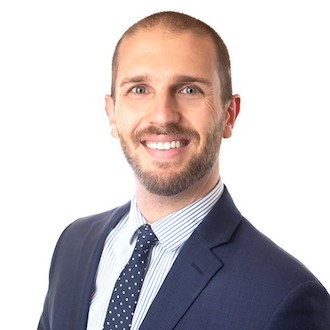Veterans can make an impact on the accounting profession
By Cecilia Yontz, OSPCA marketing and communications intern
U.S. veterans can put their unique skills to good use within the accounting profession.
“The thing that I took away most was the mindset of being motivated, being disciplined, wanting to lead people and wanting to put people in a position to succeed,” said Keenan Cooper, CPA.

(PICTURED: Keenan Cooper)
Cooper, a manager of information technology audit at Grant Thornton LLP, enlisted in the Army when he was s17 years old. He served as a military intelligence analyst in the Army Reserves for eight years, including a year-long deployment to Afghanistan in support of Operation Enduring Freedom. During this time, Cooper developed many useful traits.
“Clear, precise, direct communication is something that the Army is good at teaching you,” he said. “The soft skill of being precise with your language is extraordinarily important. People that can communicate clearly, directly, and precisely have a leg up over other people when they're in the workforce.”
When he returned from Afghanistan, Cooper returned to school, graduated with an accounting degree, started at Grant Thornton, and got his CPA. However, accounting wasn’t always his chosen path. Prior to accounting, Cooper had interests in psychology and education which now tie into his current work.
“What I learned from navigating those different study areas is that there are a lot of opportunities even outside of those specific fields where I could apply or learn more about the things that I found really interesting and accounting offered me those opportunities,” said Cooper.
For veterans or those currently serving who are looking to return to school, Cooper noted it is important to pursue a career that you are passionate about.
“Don't be tied down to your specialty,” he said. “A lot of people that come out of the service feel like ‘ I learned how to be a mechanic, I have to be a mechanic,’ but that's not true.”
Like Cooper, Roberts stressed that his three years as a lieutenant in the Air Force had an incredible impact on him and aided him in his career.
“In the military, you learn skills that stay with you all the time,” said Roberts, who served during the Cold War. “They teach you basic skills like showing up for work on time and staying and working the whole day and that becomes ingrained into you.”
A key skill the Air Force helped Roberts develop was public speaking.
“You learned how to get up in front of a group, how to talk and how to establish control,” he said. “And even more important, you learned that your goal was not to show them how smart you were or how much you knew. The goal was to make them know more when they were finished than they knew at the beginning.”
When Roberts’ military journey ended, he became a CPA and bought in as a partner to a CPA firm that was established by Del Hoover, who served in the Navy. The firm then became Hoover & Roberts, Inc. Being able to work with a fellow veteran was an advantage for both.
“The two of us together shared that background and it made it very easy for us to work together,” said Roberts. “I don't know that we had any kind of significant disagreement in 35 years of practice together. In terms of how we were going to treat our employees and work ethic, we were both on the same page and that was because we'd both been in the military.”
Roberts controlled the audit practice which they eventually sold to Clark Schaffer Hackett. Roberts worked there for three years before joining OSCPA and then retiring a couple years later.
Being in the military is a significant experience that has a huge impact on veterans and those currently serving. Roberts said that adapting to civilian life and the workforce will take time.
“Be aware of the fact that you're going to be much more self-disciplined, much more mission oriented and probably more mature than the people that you're working with,” said Roberts. “There's going to be some adjustment. They have to adjust to you, and you have to adjust to them.”
